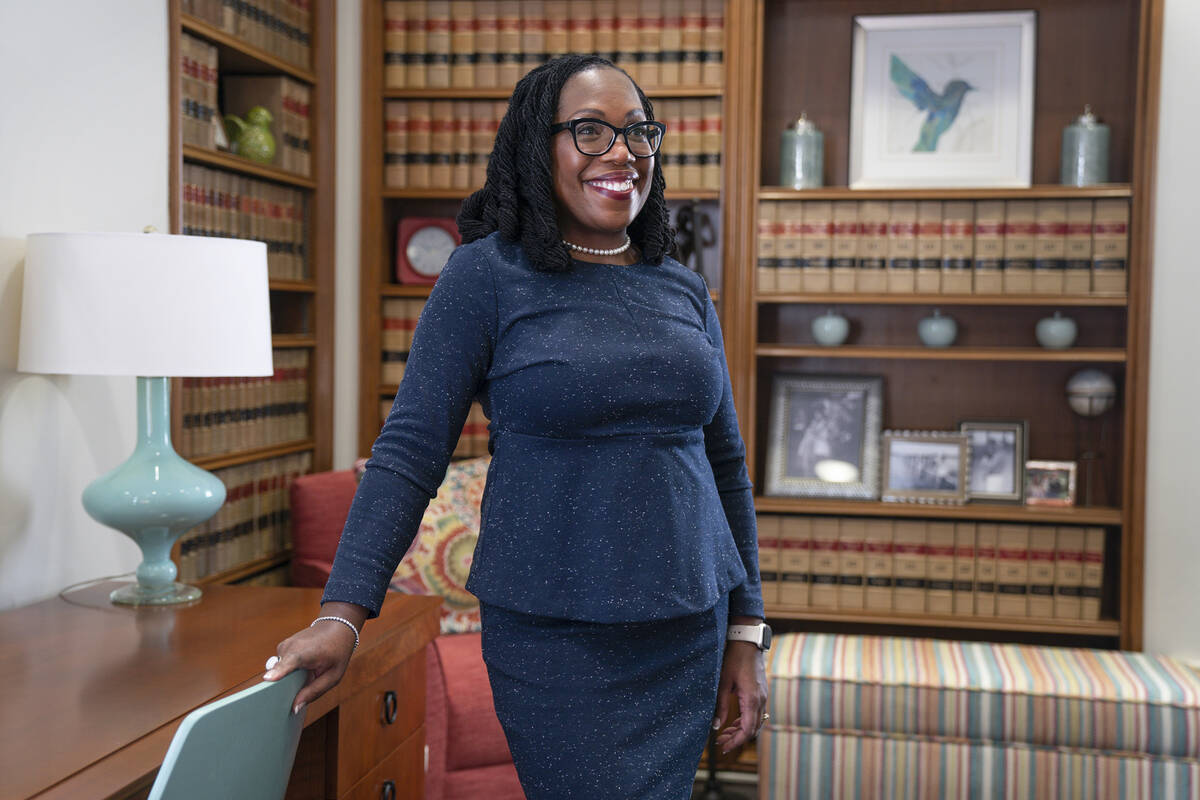Justice Jackson’s abysmal affirmative action dissent | RICH LOWRY
Justice Ketanji Brown Jackson’s dissent in the Supreme Court’s affirmative action case achieved instant legendary status in certain quarters. Vice President Kamala Harris called it “probably one of the most brilliant dissents that any justice of the United States Supreme Court has ever written.”
Yes, Jackson is apparently right up there with the likes of Justice John Marshall Harlan, the lone dissenter in the infamous Plessy v. Ferguson decision upholding separate but equal.
Ketanji Jackson took great umbrage at the court striking down race-based college admissions in the case involving the policies of Harvard and the University of North Carolina (she recused herself from the Harvard part of the ruling). Her much-praised handiwork, though, hardly qualifies as a legal opinion. It reads like a guest essay by “anti-racist” guru Ibram X. Kendi in The New York Times.
“With let-them-eat-cake obliviousness, today, the majority pulls the ripcord and announces, ‘colorblindness for all’ by legal fiat,” she pronounces in what is supposed to be a thunderous line.
There are several notable things about this. One, the writing doesn’t work. If you are oblivious, you usually aren’t undertaking acts that require focused effort, such as pulling a ripcord. The inapt metaphor aside, the sneer quotes around “colorblindness for all” are quite something coming from a Supreme Court justice in the United States of America.
In making their case against racial preferences, the justices in majority invoke the 14th Amendment and Title VI of the Civil Rights Act of 1964. If Jackson were being consistent, her sneering would extend to the Civil Rights Act, for it, too, favors colorblindness for all: “No person in the United States shall, on the ground of race, color, or national origin, be excluded from participation in, be denied the benefits of, or be subjected to discrimination under any program or activity receiving Federal financial assistance.”
Jackson spends a lot of time recounting the country’s racial sins and then declares them inescapable today. Even if this simplistic account were true, she fails to establish why racially biased college admissions are legal or warranted. She writes of the “universal benefits of considering race in this context.” But college admission is zero sum — only so many applicants get accepted, and if some are being disadvantaged, they are obviously suffering a harm.
In classic two-wrongs-make-a-right reasoning, she says that UNC’s admission process is fairer than it used to be when it excluded Black people — as if past discrimination justifies current discrimination harming people who had nothing to do with the prior injustices. The admissions process, Jackson says, “allows consideration of all factors material to merit,” adding in a parenthetical, “including race.”
She doesn’t spell out which races she considers especially meritorious, although the policies she defends are meant to suppress Asian Americans acceptances. Asian Americans are, to use the woke term, “invisible” to her, an expendable chit in a grand morality play of black and white. There’s no modulation in her views on race — no awareness that many Black people are from immigrant families untouched by American slavery, or that Asian Americans also have a history of discrimination, or that some white people have had a tougher upbringing than some Black, or that people are individuals, not racial archetypes.
Even if putting students from different backgrounds together “improves cognitive abilities and critical thinking skills, reduces prejudice, and better prepares students for post-graduate life,” as Jackson maintains, there’s no reason to conclude that race is the only or most important element of diversity. What has the child of Vietnamese immigrants done to be considered harmful to diversity and the education of other students?
In head-spinning logic, Jackson asserts that ending discrimination in admissions “will delay the day that every American has an equal opportunity to thrive, regardless of race,” and “ignoring race makes it matter more.”
Discrimination is anti-discrimination. Bias is fairness. 2+2=5. Justice Harlan’s dissent in Plessy is unmistakable: “Our Constitution is color-blind and neither knows nor tolerates classes among citizens.” Justice Jackson takes a different view.
Rich Lowry is on Twitter @RichLowry
No Byline Policy
Editorial Guidelines
Corrections Policy
Source
